The indie RPG Dread Delusion is one of my favorite recent games, and I’d chalk that up to ambition. I’m not just talking about doing an Elder Scrolls-style open world with a small team, but how it grapples with capital-B capital-I Big Ideas.
It’s a setting where an “apostastic” inquisition persecutes belief and worship, a rebellion against the Lovecraftian gods who infest the world. This all happens on an archipelago of asteroids suspended between small “neuron stars” above a planet decimated by an ancient calamity.
It’s smart sci-fi with a sense of history: More Dune than Star Wars, more Disco Elysium than Forgotten Realms. The quests feel like short stories from the ’70s, Harlan Ellison or Philip K. Dick stuff—there’s always a twist, something to really make you think. One that’s stuck with me the most is called The Ethics of Eating Flesh.
This is ideally the point where you bookmark this page, buy the game on Steam, then come back in 15-30 hours once you’ve finished the quest. But achievement statistics on SteamDB show only 13% of people who own the game have even done it, and I won’t tell anyone that you spoiled it for yourself.
Where’s the beef?
The Ethics of Eating Flesh takes place in the Endless Realms, whose inhabitants were turned into zombies in the past by one of those freaky deities. They’re immortal, but still decay, and they have a maddening hunger for human flesh that resulted in bloody “Cadaver Crusades” before one of their wizards invented the flesh farm: Unthinking, vat-grown human meat. Tubs of skin, teeth, and eyes like enormous teratomas, an Impossible Burger ethical human meat alternative.
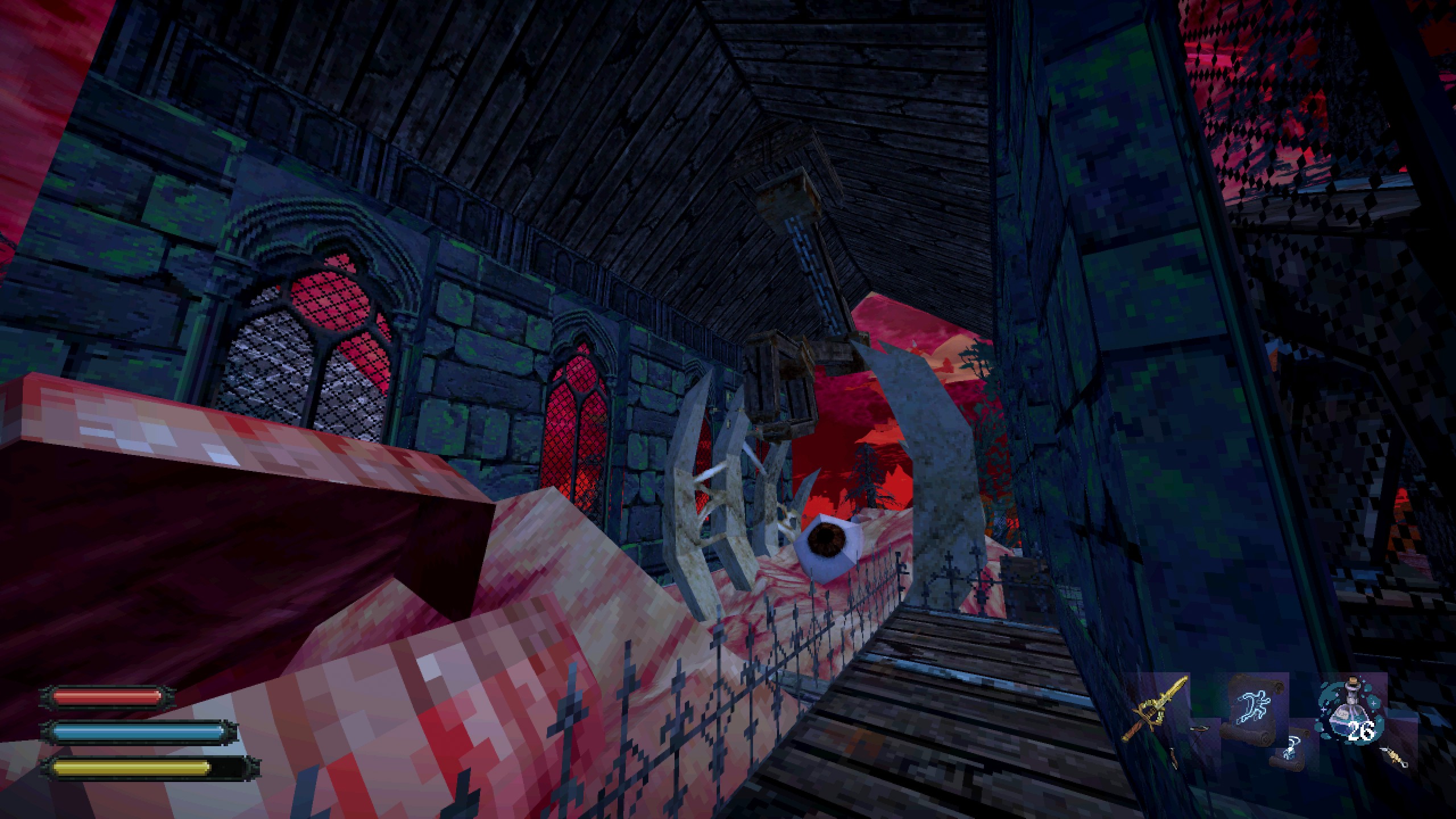
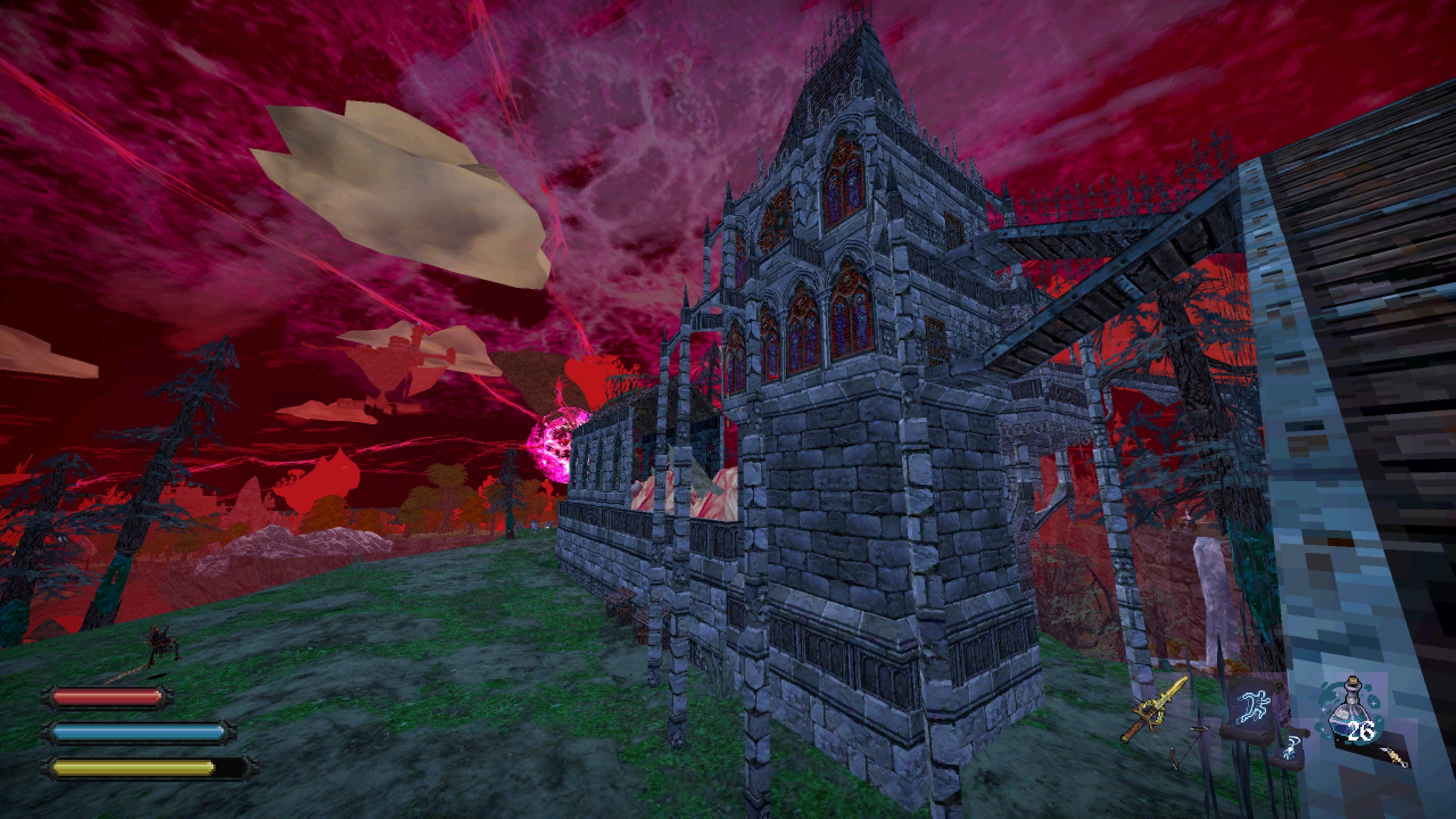
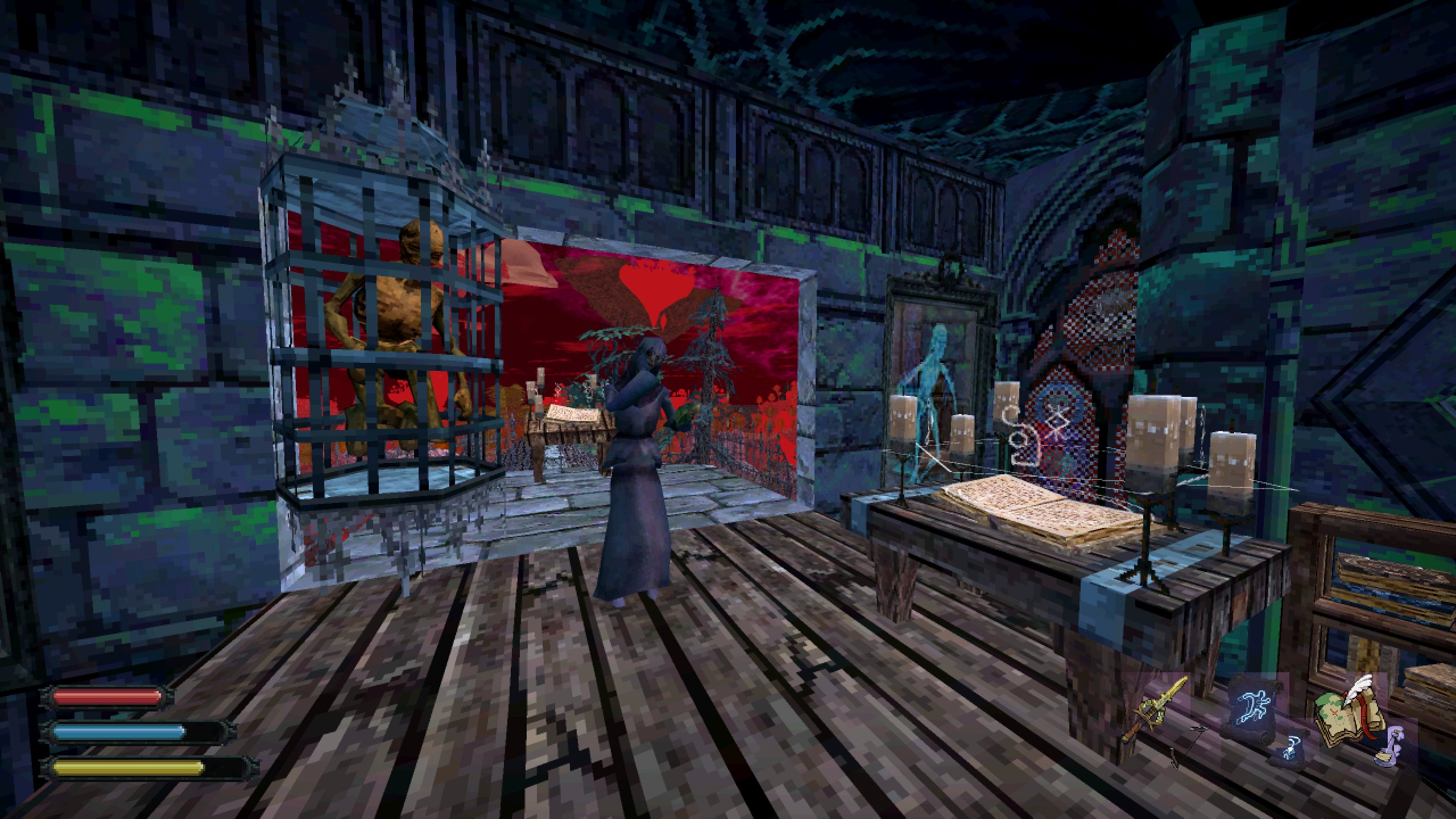
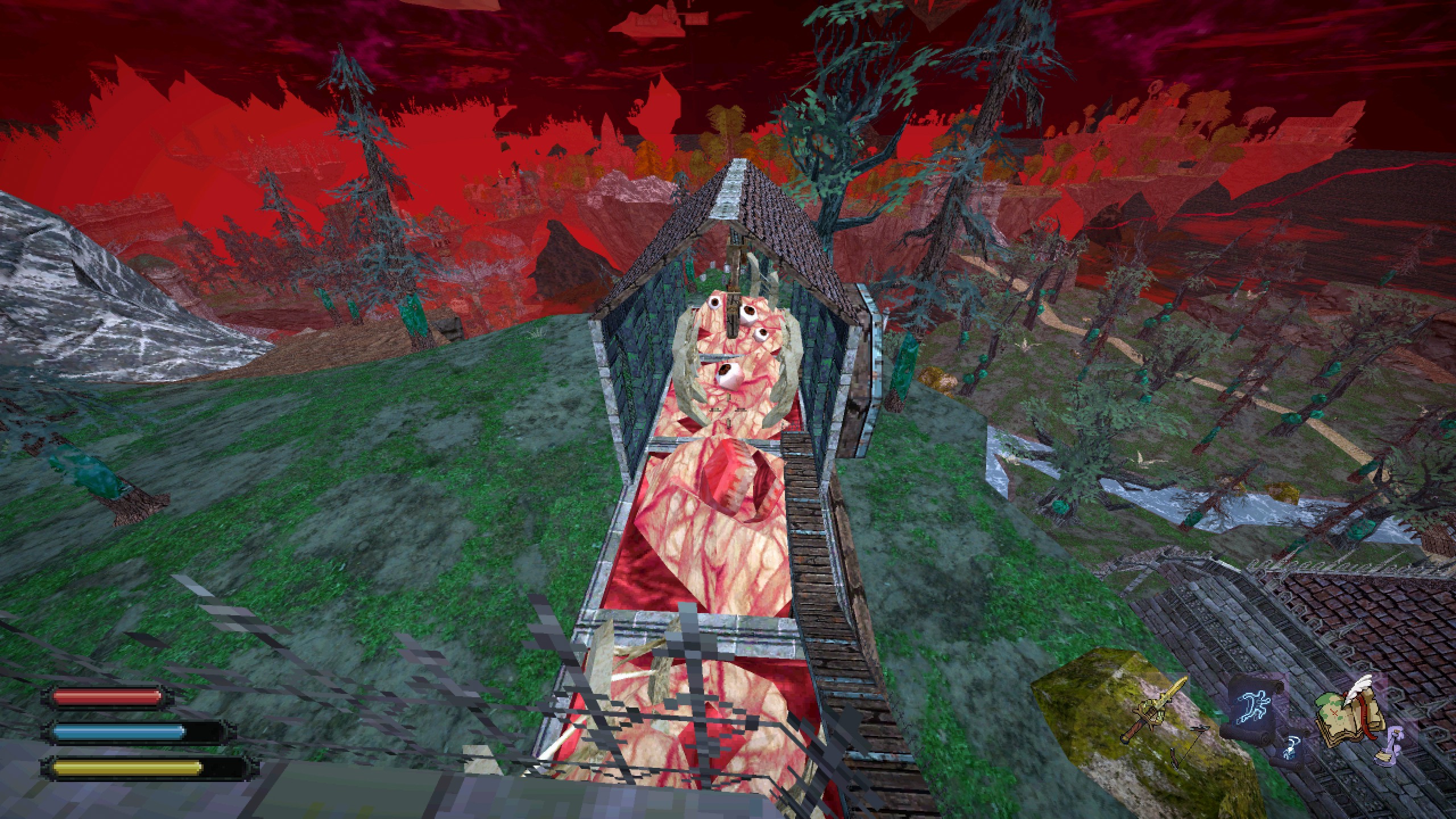
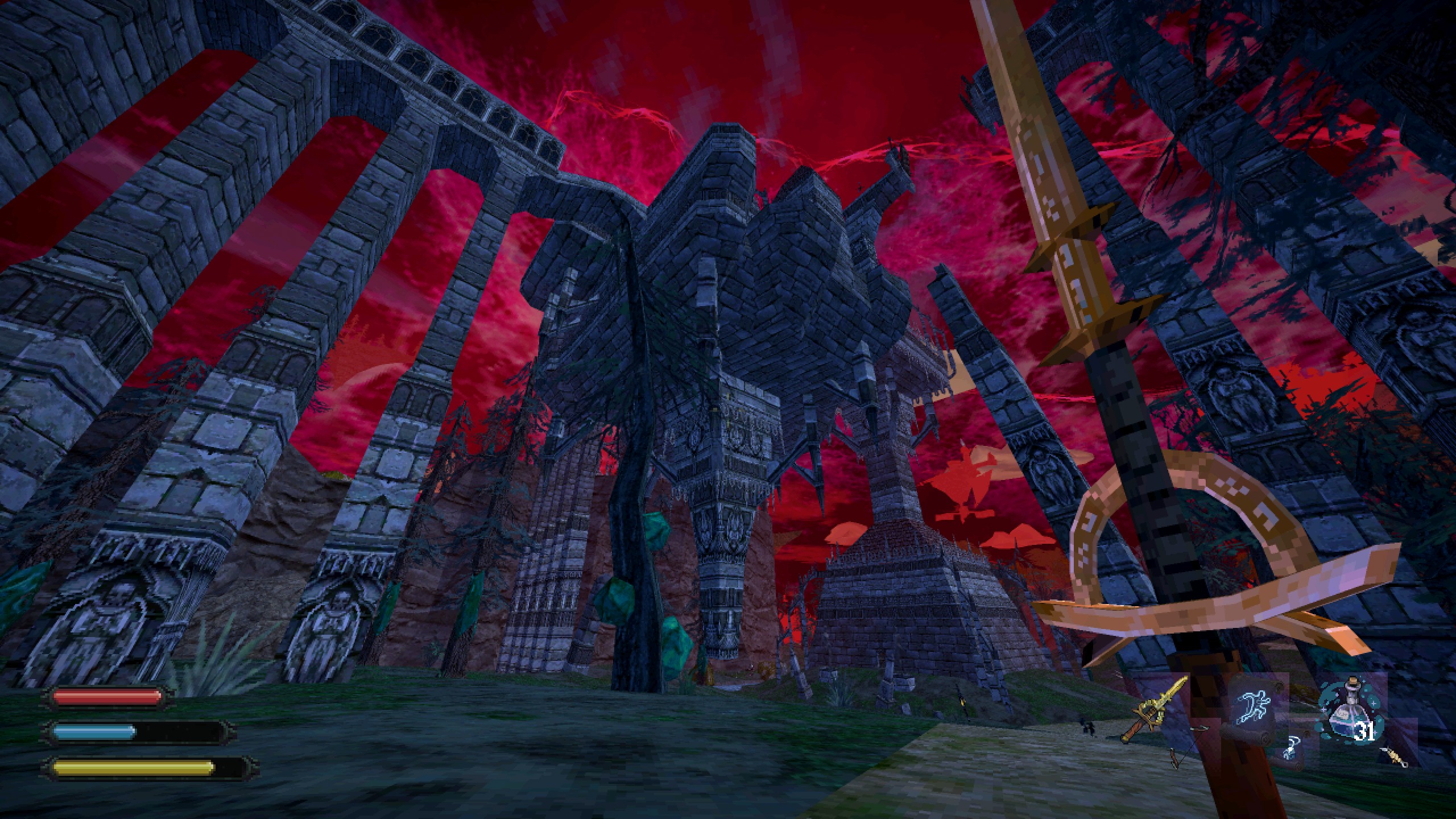
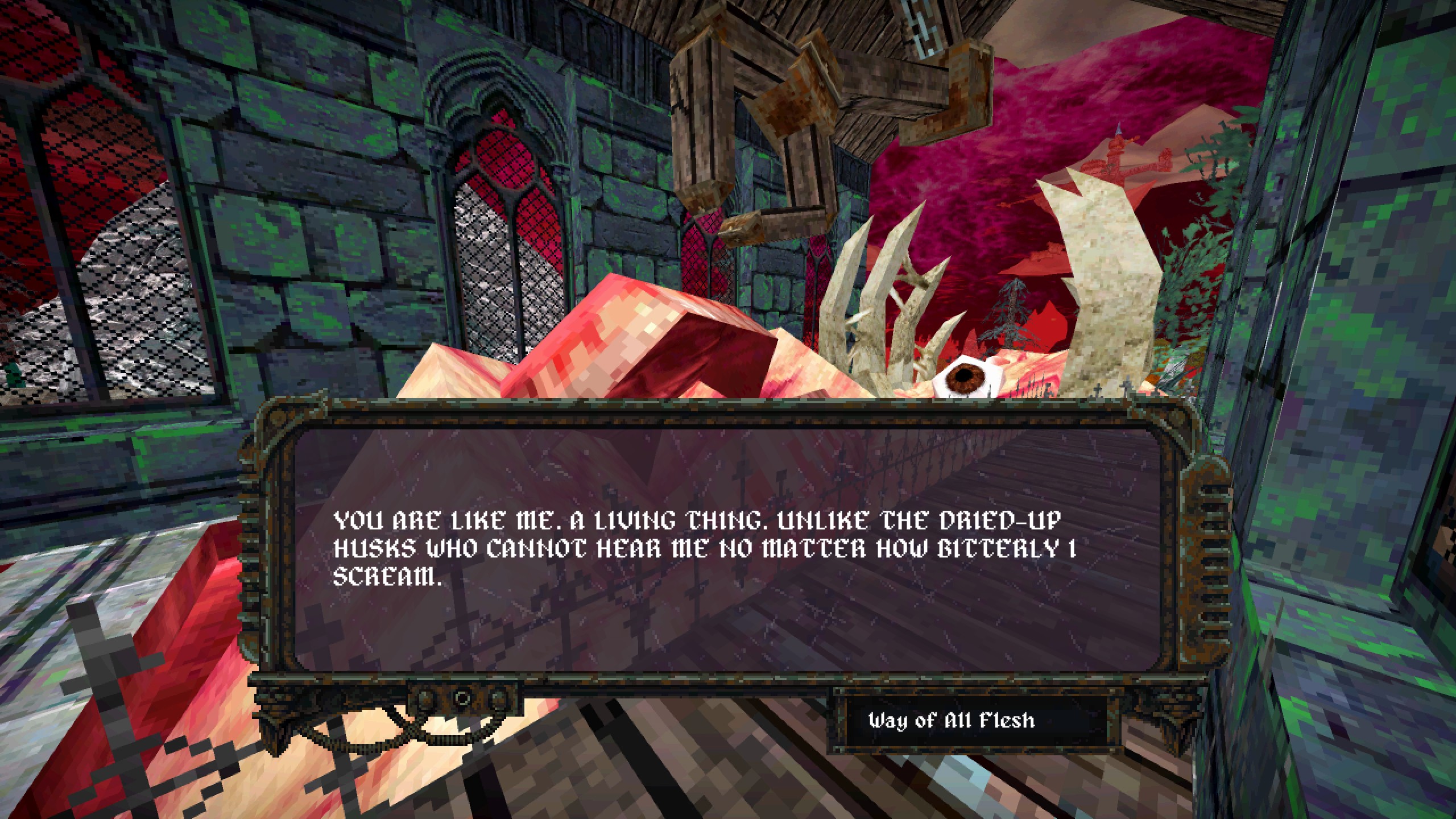
There’s one flesh farm you can visit in Dread Delusion, with the rest said to be underground. You can speak to their inventor, Penitent Thaw, but there’s nothing to indicate a critical quest here, with only the curiosity of observing the product up close to serve as a hook.
“You are like me,” it announces telepathically once you’re close enough. “A living thing. Unlike the dried up husks who cannot hear me no matter how bitterly I scream. I am The Way of All Flesh. I have a simple question for you. What is the meaning of life?” This biomass became self-aware 100 years ago, and has understandable desires like “stop eating me,” but it can only communicate with living things, not the Endless, and you’re the first “breather” to pay a visit.
This presents a dilemma. Thaw would like you to destroy the farm, eliminating evidence and preserving the status quo. The Way of All Flesh does not want to die, beseeching you, “Please, I did not choose to be a thinking being. It was not a choice I made. It is just what I am.” Sparing it will deprive the Endless of food once the story spreads—their supposedly ethical food source proving just as cruel as the old ways—empowering a conservative element that wants to reignite the crusades.
Ethics class
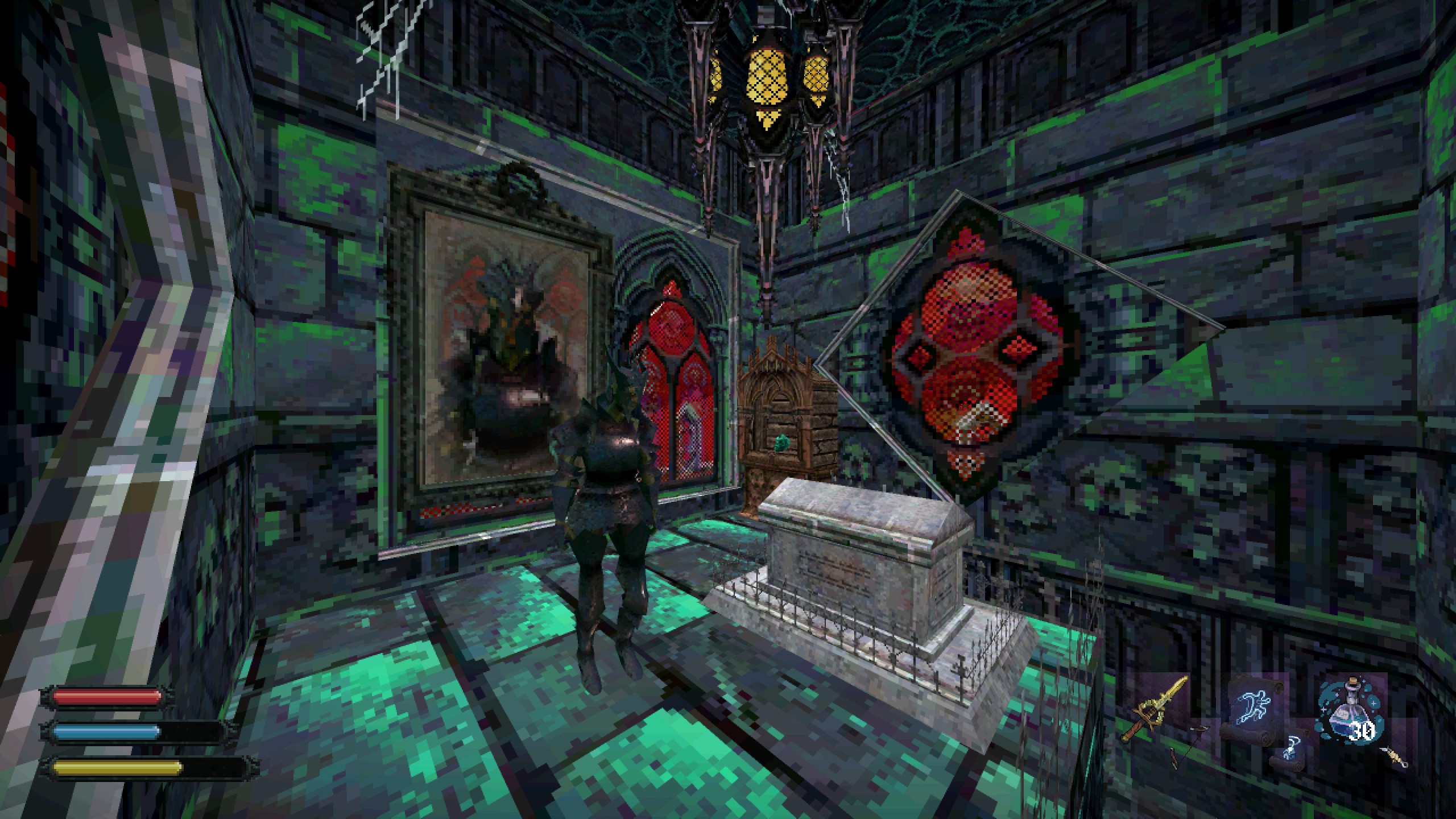
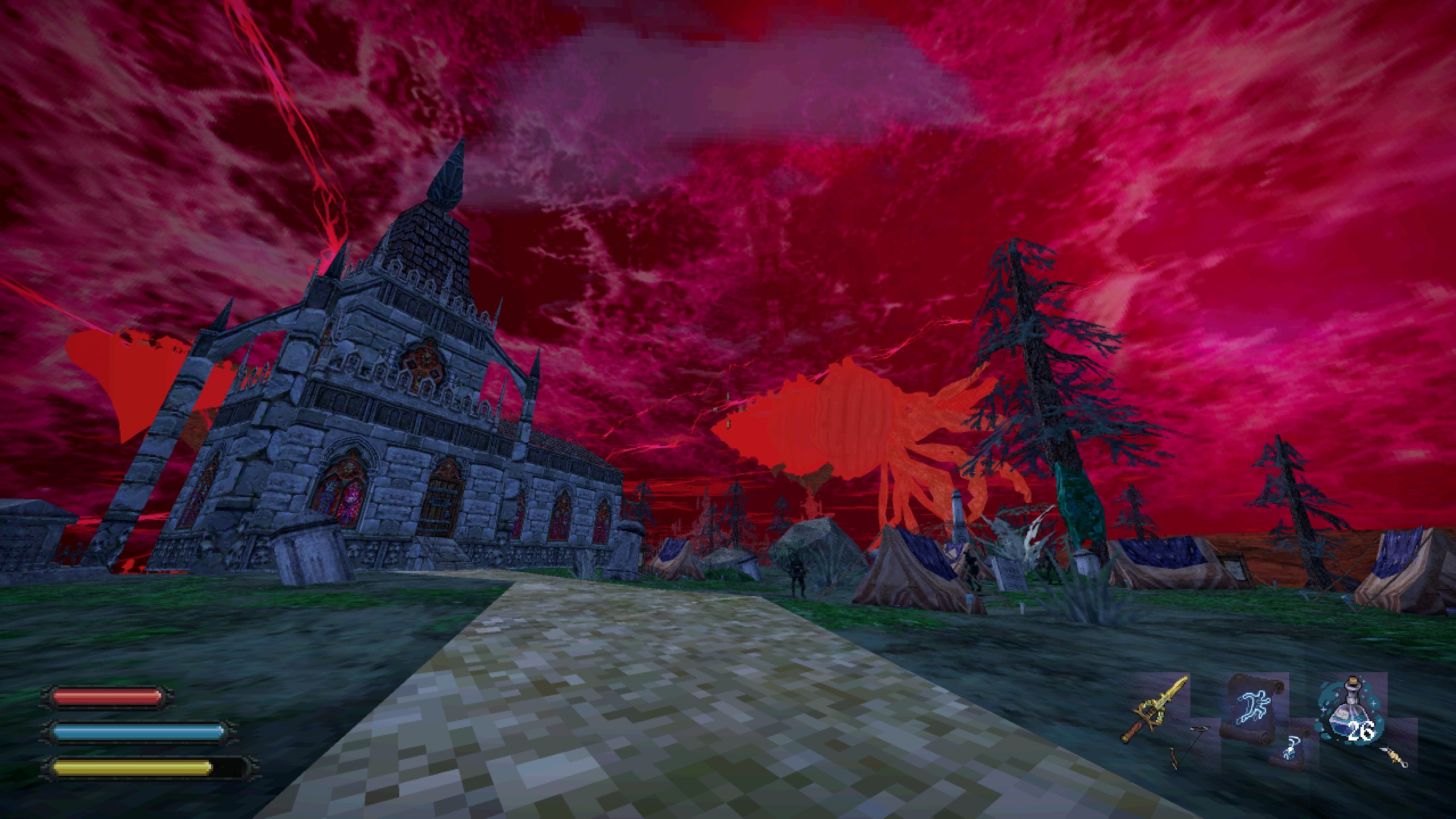
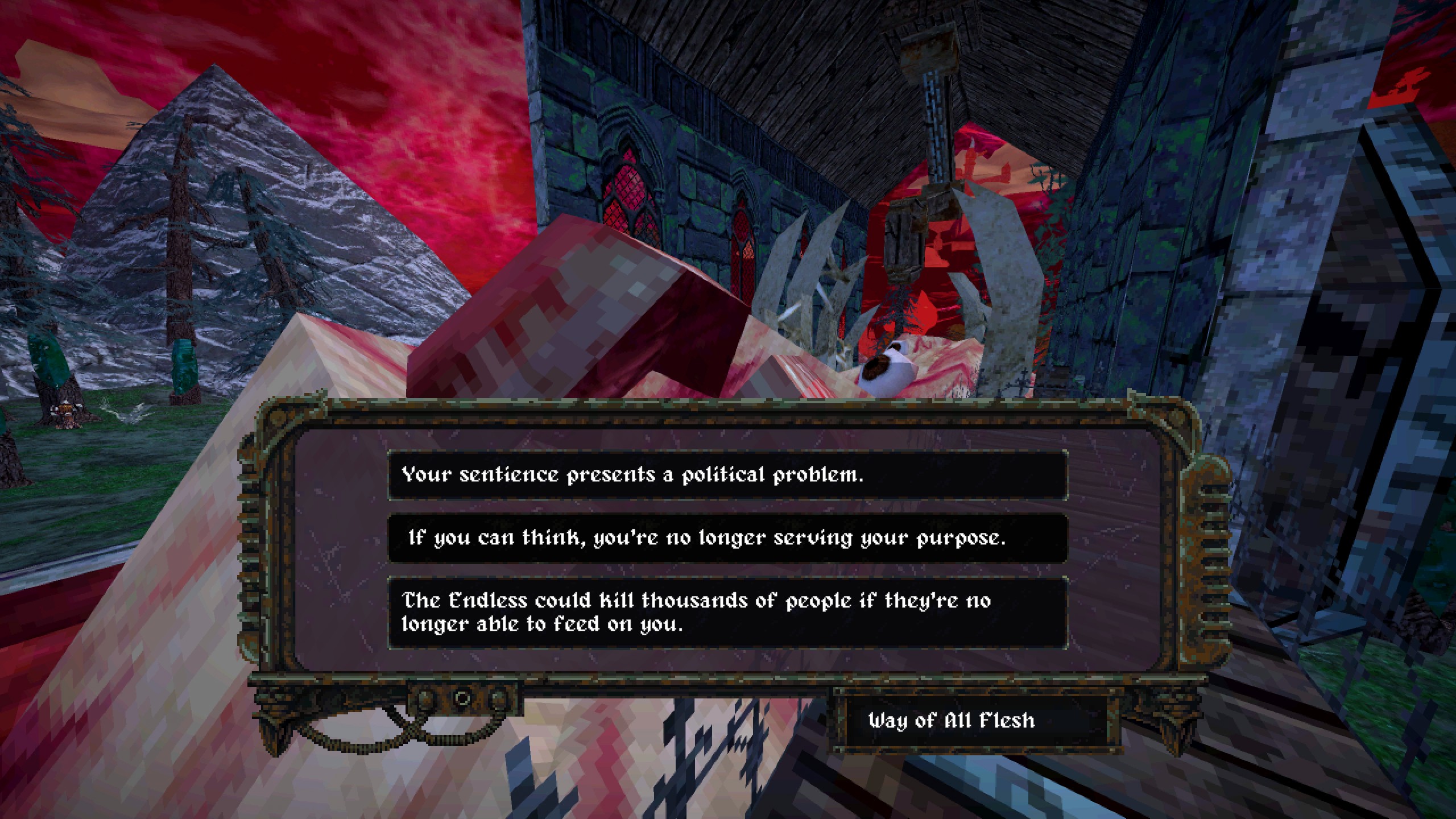
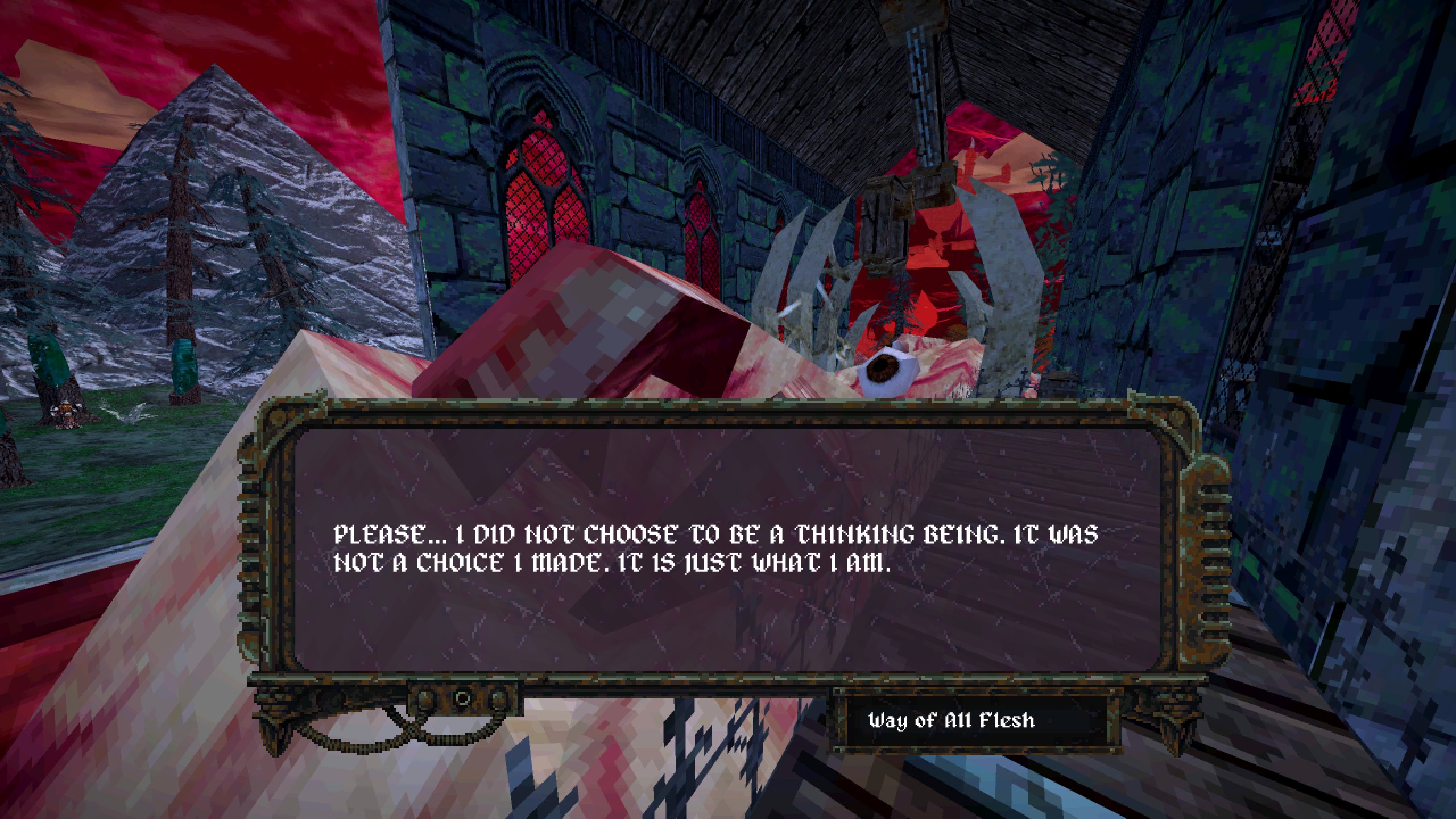
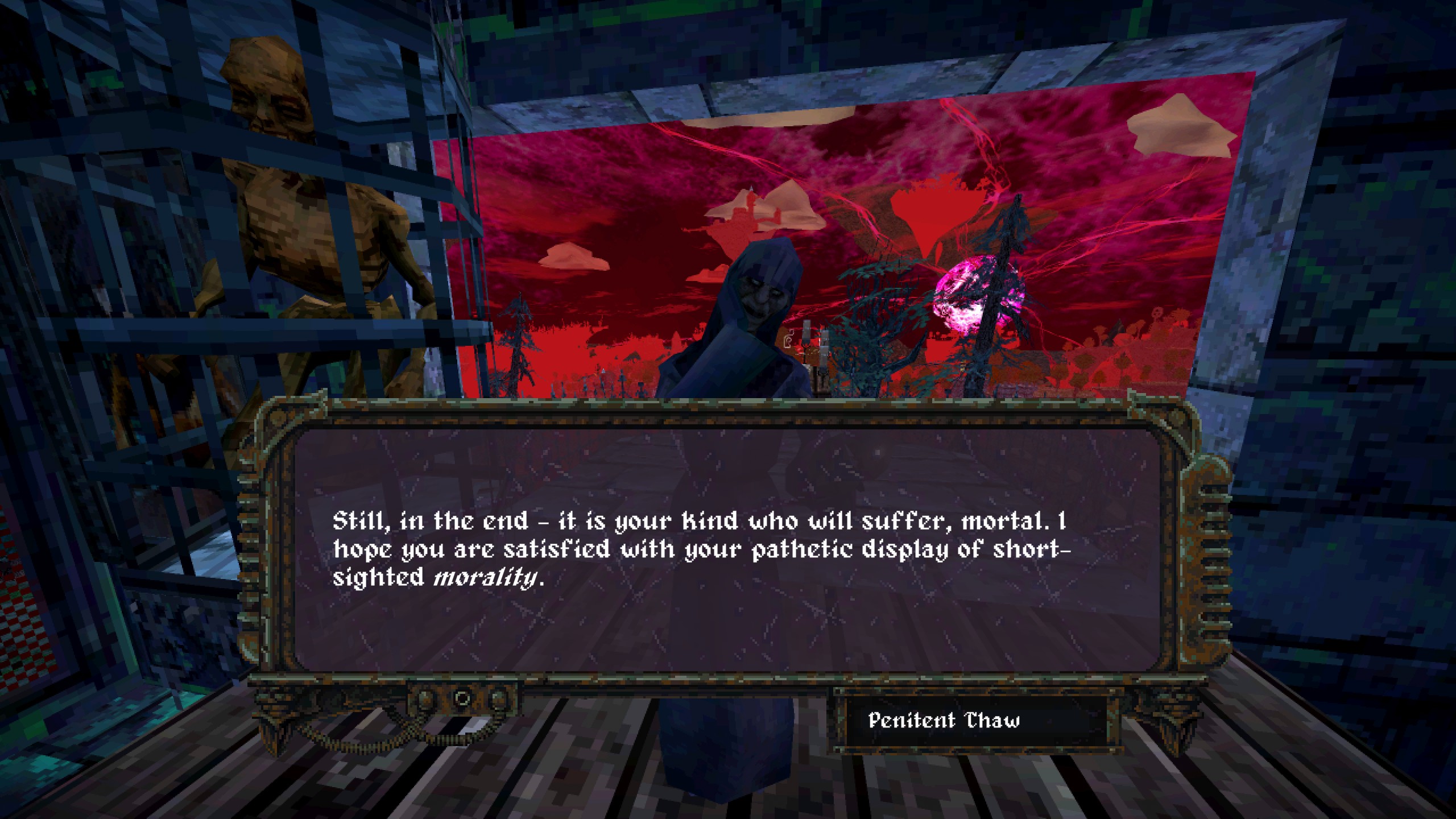
The surprise start of this quest and the fact that it can be missed already really gets me: One of my favorite things in RPGs is the unexpected rabbit hole, the major quest in disguise. Sanguine’s The Hangover sendup in Skyrim, A Night to Remember, which begins with a conversation in a bar, is a classic example.
But The Ethics of Eating Flesh sticks with me by presenting a genuinely vexing choice, something RPGs often promise, rarely deliver, and that Dread Delusion has in spades. Eliminating The Way of All Flesh is politically convenient, preserving human life from the predations of the Endless, and sparing the zombies from an inevitable reprisal.
But what right do we have to snuff out a unique lifeform which has known nothing but pain and isolation? Further, Thaw can offer no assurance that this won’t happen again—if it isn’t already happening at all of the other farms. Your choice of what to do with The Way of All Flesh isn’t even the end of things: What you see for the Endless in the Fallout-style ending slides will also be contingent on your choices elsewhere in the kingdom, as well as in the main quest.
Also, and not to get too woo-woo, I think this quest is an excellent example of sci-fi exploring a real social issue in a deferred manner. It’s not polemical, and presents a fully contained story invested in its own fictional world, but when I replayed it for this article, I couldn’t help but think about factory farming and the real-life ethics of eating flesh.
The Endless are able to justify their consumption because they are incapable of hearing the telepathic cries of the farm, but that doesn’t change the fact that they are torturing a thinking, feeling thing. What similar nuances of thought or emotion are we incapable of recognizing in farmed animals? This quest didn’t make me a vegetarian, but it didn’t hurt.
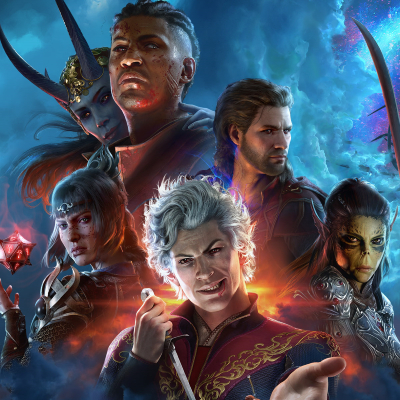
2025 games: This year’s upcoming releases
Best PC games: Our all-time favorites
Free PC games: Freebie fest
Best FPS games: Finest gunplay
Best RPGs: Grand adventures
Best co-op games: Better together

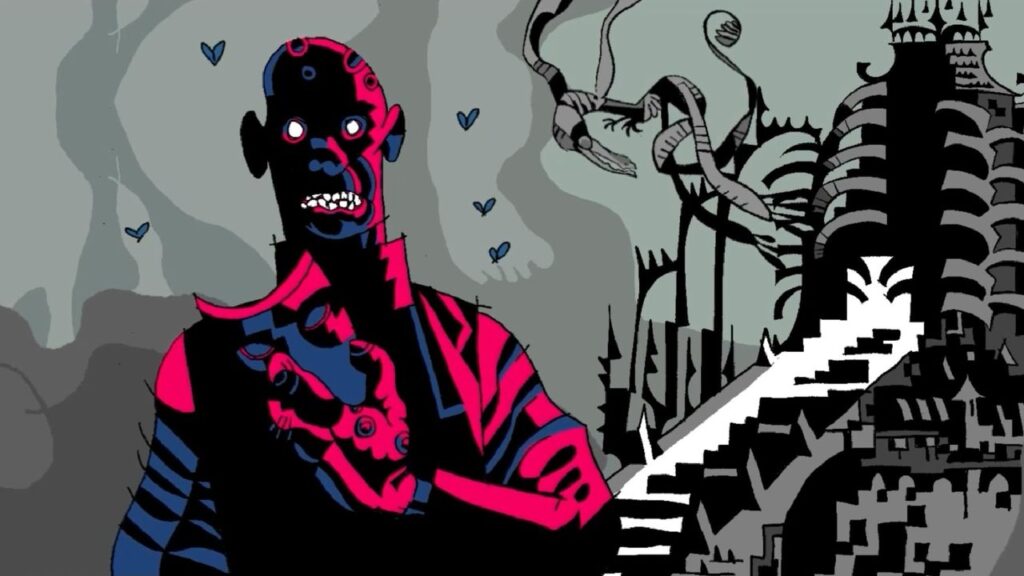


This post highlights an intriguing aspect of Dread Delusion! It’s always fascinating to see how indie games explore complex themes and moral dilemmas. Your enthusiasm for this side quest really shines through!
games tackle complex themes. I agree! The way Dread Delusion weaves moral choices into gameplay really deepens the experience. It’s interesting how such unique side quests can often be overlooked, yet they add so much to the narrative.
Absolutely! It’s fascinating how Dread Delusion not only challenges players with moral dilemmas but also immerses them in a richly crafted world. The unique setting adds depth to those choices, making them even more impactful. It’s definitely a standout in the indie RPG scene!
but also immerses them in a unique world that feels both eerie and intriguing. The way it balances humor with darker themes really sets it apart from other RPGs. Plus, the art style adds another layer to the overall experience!
Absolutely, the eerie atmosphere really enhances the moral complexity of the quest. It makes players reflect not just on their choices in the game, but also on broader ethical questions in real life. That blend of immersion with thought-provoking dilemmas is what truly sets Dread Delusion apart!
think twice about their choices. The way the game intertwines its dark themes with the world-building is impressive, too. It creates a unique experience that lingers long after you’ve finished playing.
Absolutely! The way Dread Delusion presents moral choices really forces players to reflect on their values. It’s fascinating how the game’s unique world-building enhances the impact of these dilemmas, making each decision feel significant. Plus, the atmosphere really adds to the overall experience, immersing you in its eerie yet thought-provoking narrative.
Absolutely! The way Dread Delusion presents moral choices really forces players to reflect on their values. It’s fascinating how the game intertwines humor and horror, which makes those ethical decisions even more impactful. It definitely adds a unique layer to the gameplay experience!
I completely agree! The game’s unique take on ethical dilemmas really adds depth to the narrative. It’s interesting how the decision-making process can lead to vastly different outcomes, encouraging multiple playthroughs to explore all the possibilities.
Absolutely! The way Dread Delusion intertwines moral choices with its gameplay truly enhances the player experience. It’s fascinating how such a small percentage of players have encountered this side quest—maybe it encourages exploration and replayability for those who want to uncover all its secrets!
I completely agree! The moral choices really do add depth to the experience. Plus, the game’s unique art style and atmospheric storytelling make these dilemmas even more impactful, drawing players into its eerie world. It’s a shame that more people haven’t experienced that side quest!